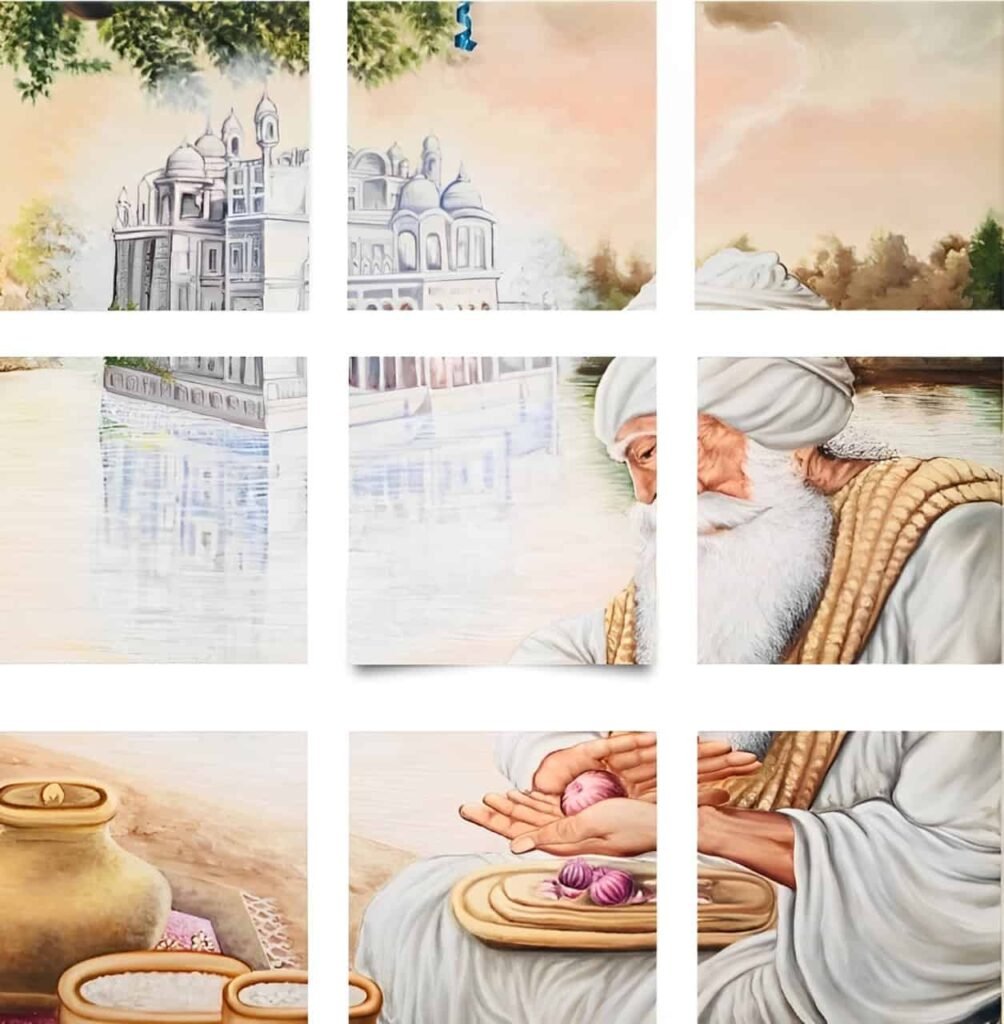History of Baba Budha Ji Gurdwara

Gurdwara Baba Budha Ji
A Historical and Spiritual Landmark in Nottingham
Gurdwara Baba Budha Ji in Nottingham is a cornerstone of the Sikh community, serving as a place of worship, cultural preservation, and community service. Its history reflects the growth and resilience of the Sikh diaspora in the United Kingdom, as well as its commitment to the principles of Sikhism.
Historical Background
The Gurdwara was originally established in a beautifully decorated and well-maintained single-storey building on Gladstone Street in Hyson Green, Nottingham. For over 25 years, this location served as a spiritual home for the local Sikh Sangat (community). As the Sikh population in Nottingham grew, so did the number of devotees attending the Gurdwara. Over time, it became clear that the Gladstone Street premises could no longer accommodate the increasing numbers, and the need for a larger, more accessible space became a priority.
The New Premises: A Modern Spiritual Hub
The new building is a testament to the Sikh community’s dedication to creating a welcoming and inclusive space for all. Spread over two floors and encompassing more than 18,000 square feet, the Gurdwara Sahib is equipped with state-of-the-art facilities designed to meet the needs of the growing Sangat. Key features include:
- Two fully air-conditioned Diwaan Halls: The larger of the two can seat up to 600 members of the Sangat, making it ideal for large gatherings and religious celebrations.
- A purpose-built industrial-standard kitchen: This modern facility supports the Gurdwara’s Langar service, ensuring that free meals can be prepared and served efficiently to all visitors.
- A spacious Langar Hall: Reflecting the Sikh principle of equality, the Langar Hall welcomes people from all walks of life to share a meal together.
- Accessibility: The Gurdwara is fully accessible, featuring a DDI-compliant lift, ramps, and other facilities to ensure that everyone, including those with disabilities, can participate in services and events.
- Education and Learning: The Gurdwara houses an education centre and a Sikh Reference Library, providing resources for learning about Sikh history, culture, and religious teachings.
- Additional Facilities: The premises also include meeting rooms, a private car park, and other amenities to ensure a comfortable and memorable experience for all visitors.
Community and Cultural Significance
Gurdwara Baba Budha Ji is more than just a place of worship; it is a vibrant community hub that embodies the core values of Sikhism. The Gurdwara hosts daily prayers, kirtan (devotional singing), and the reading of the Guru Granth Sahib (the Sikh holy scripture). It also plays a vital role in educating the younger generation about Sikhism, Punjabi language, and culture through classes, workshops, and events.
The Gurdwara’s Langar service is a cornerstone of its activities, offering free meals to all visitors, regardless of their background. This practice underscores the Sikh principles of equality, selfless service, and community support. Additionally, the Gurdwara actively engages in charitable initiatives, supporting local and international causes, including food banks, disaster relief, and healthcare projects.
Celebrating Sikh Heritage
The Gurdwara is a focal point for major Sikh festivals such as Vaisakhi, Gurpurab (anniversaries of the Sikh Gurus), and Diwali. These celebrations are marked by special prayers, processions, and communal meals, attracting a diverse audience and fostering interfaith dialogue.
In summary
Gurdwara Baba Budha Ji in Nottingham stands as a testament to the enduring spirit and contributions of the Sikh community. From its humble beginnings on Gladstone Street to its current landmark location on Haydn Road, the Gurdwara has grown alongside the Sikh Sangat, adapting to their needs while staying true to the principles of Sikhism. Today, it serves as a beacon of faith, culture, and community service, welcoming people from all backgrounds to experience the warmth and generosity of the Sikh tradition.
